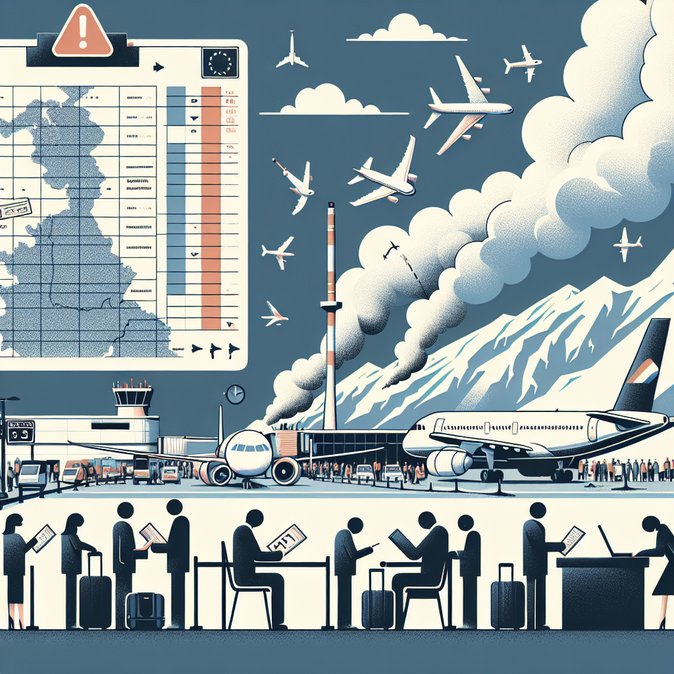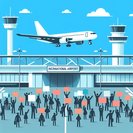
European aviation faced its worst single-day disruption since the summer when weather systems and rolling staff shortages caused 98 cancellations and more than 1,000 delays on 28 October 2025. Data compiled by flight-tracking platform FlightAware show Paris-Charles-de-Gaulle and Orly among the five hardest-hit hubs, together accounting for 17 cancellations and 226 delayed departures.
The chain reaction began with an overnight volcanic-ash warning over Iceland, forcing Icelandair to ground east-bound transatlantic services. Knock-on congestion in UK and German airspace, paired with a wave of sickness among air-traffic-control (ATC) teams in Marseille and Brest, pushed delay averages in France past the 60-minute mark by mid-morning. Air France pre-emptively slashed regional rotations to Bordeaux, Nice and Toulouse to keep long-haul banks intact.
Travel-management companies (TMCs) report that multinational clients lost a full day of meetings across their Paris and Lyon offices, highlighting the fragility of corporate itineraries as Europe transitions to the new EES border checks. With biometric kiosks still in soft-launch mode at CDG’s Terminal 2E, immigration queues of up to 90 minutes compounded the schedule chaos.
Airlines are advising passengers to arrive at least three hours before intra-Schengen flights from Paris—a dramatic step-up from the traditional 90-minute guideline—and to carry printed proof of onward accommodation to expedite secondary screenings if EES kiosks fail. Mobility teams should assess whether to shift connecting routings to Amsterdam or Frankfurt until French ATC resources stabilise.
While most delays cleared by late evening, analysts warn that overlapping labour-action ballots among French ATC unions for November could turn such ‘perfect-storm’ days into a recurring autumn risk.
The chain reaction began with an overnight volcanic-ash warning over Iceland, forcing Icelandair to ground east-bound transatlantic services. Knock-on congestion in UK and German airspace, paired with a wave of sickness among air-traffic-control (ATC) teams in Marseille and Brest, pushed delay averages in France past the 60-minute mark by mid-morning. Air France pre-emptively slashed regional rotations to Bordeaux, Nice and Toulouse to keep long-haul banks intact.
Travel-management companies (TMCs) report that multinational clients lost a full day of meetings across their Paris and Lyon offices, highlighting the fragility of corporate itineraries as Europe transitions to the new EES border checks. With biometric kiosks still in soft-launch mode at CDG’s Terminal 2E, immigration queues of up to 90 minutes compounded the schedule chaos.
Airlines are advising passengers to arrive at least three hours before intra-Schengen flights from Paris—a dramatic step-up from the traditional 90-minute guideline—and to carry printed proof of onward accommodation to expedite secondary screenings if EES kiosks fail. Mobility teams should assess whether to shift connecting routings to Amsterdam or Frankfurt until French ATC resources stabilise.
While most delays cleared by late evening, analysts warn that overlapping labour-action ballots among French ATC unions for November could turn such ‘perfect-storm’ days into a recurring autumn risk.









